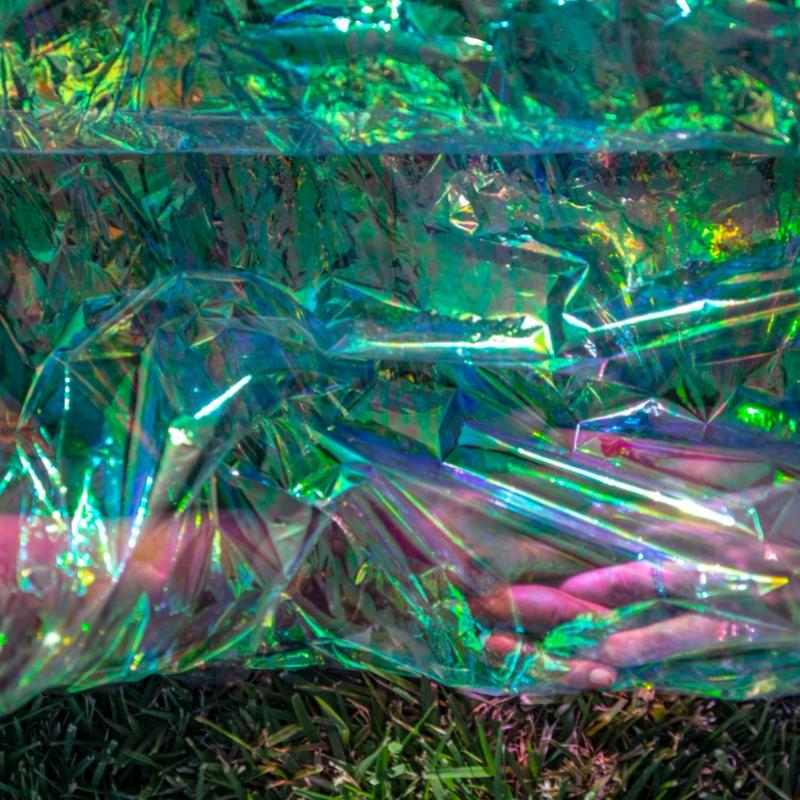Vows
by Celeste SeaThe first time I watch Godfrey juicing Ma’s perfume across his shoulders, he’s been living in our attic for about a week. Don’t tell anyone, he says, holding a finger to his mouth. He’s drawn his lips on ribbon-like, and they’re so red they hug his face like two freshly cleaved tongues. Ma could easily mistake him for a ghost, I’m thinking, and this is why I nod. Sure, I say, all careless. Sure, I won’t say anything at all.
Godfrey’s mother is dead. According to Ma, Godfrey is living with us because his father is in trouble, and our mothers were best friends, except she doesn’t say were. Everyone knows there’s no real past tense in Chinese—that everything just continues, just goes on and on until people’s mouths forget the shape of words or until the words themselves stop existing. It’s easy to erase a memory like that. Stamp out numbers like six and four. Maybe even 1997 one day. You can guess the rest. Once, Ma could have broken the friendship. She could have said, Stop! I don’t want this anymore. I don’t want your son. But she didn’t, and Godfrey’s mother didn’t, so here we are marinating in half-stories and half-truths. Godfrey is living with us. This is true. His father is in trouble. Possible but unverifiable. Our mothers were best friends. See, a half-truth and a half-story, one missing an end. Just a mouth, no asshole. How did she die? I want to ask. Ma warns me against mentioning Godfrey’s mother, so I shut my mouth and clench my asshole, islanding myself. Happy you’re here, I say instead.
The next time I step into the attic, Godfrey is wearing Ma’s old sundress. She hasn’t worn it in years, had stopped wearing it after Ba died. In this way, Godfrey is stealing from us. From me. You’re not my mother, I say when he turns around, and he nods. I am not your mother. He pleats the dress at its empire waist, bunching up the fabric. What’s it like though? he asks. What’s it like, being a girl? He turns in the mirror and tilts his hips down and up until they bracket the air, till they make a bowl around nothing. I don’t know, I say, but you’re wearing it all wrong. I tell him to close his eyes, and when he does, I anoint him with Ma’s secret scent, blurring jasmine across his forehead even though I tell him it’s jessamine, the word soft and smooth like our brains smudging against bone. Afterwards, I show Godfrey where she hides the glass vial. Our fingers tangled, we swaddle it up in scarves that predate the idea of me. When we pull apart, he looks right like a weed blooming from the carpet. I tell him so, my insides already jealous, and he laughs. I think you’re a better fit, he says. I can already feel it. Then he looks at me thoughtfully. Next time, I say. Next time, we’ll trade.
Here is a story that’s missing a beginning. A magic trick. What Godfrey and I do in the attic is this: he hides in my skin and I in his. What’s it like, he’ll ask, and he’ll press his mouth against the crook of my elbow or along the bend behind my knee. He’ll whisper into it, into each crack of me, each hole. Hung, I’ll answer, and he’ll giggle at the trick of language, the way it shrouds what I mean. Hung as in breast. 胸. Hung as in hollow. 空. The same tone, the meaning lashed with different strokes. Hung, he’ll repeat dazedly. We chatter the word until it wriggles along our mouths. Godfrey, I’ll whisper afterwards, kissing my reflection, and I’ll see Godfrey’s chest and Godfrey’s face and Godfrey’s cock. Thank you, Godfrey will say behind me, and he’ll loll out the words with my lips, with the stem of my throat.
In another world, one of rivers and blown-glass skies and wild swordsmen, one where women make carrion of men with poison and dagger, we would swear a blood oath, the sort where we prick our fingers and collect the juice into a patient chalice. We would swirl in the drops and cut them with wine, coppering it with our promise. We would raise our hands as if hugging a tree, then bow, and finally, we would seam our lips around the rim and slide brotherhood, hot and steaming, into our muscular bellies. This story is not a new one.
If I died, you would become wife to my husband and mother to my children, I say in Godfrey’s voice while looking into my eyes. If I died, you would become husband to my wife, father to my children, he returns. Our bodies steeple in the indigo night. There is nothing more to hide. Nothing more to say. Our faces mirror each other, our bodies too.
▴▴▴

